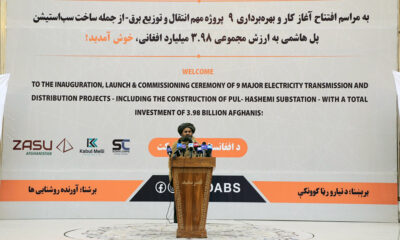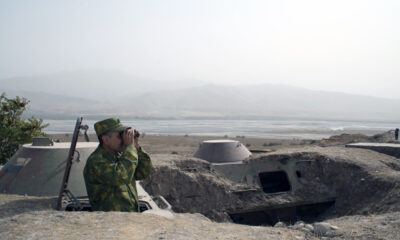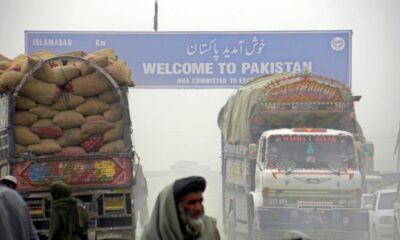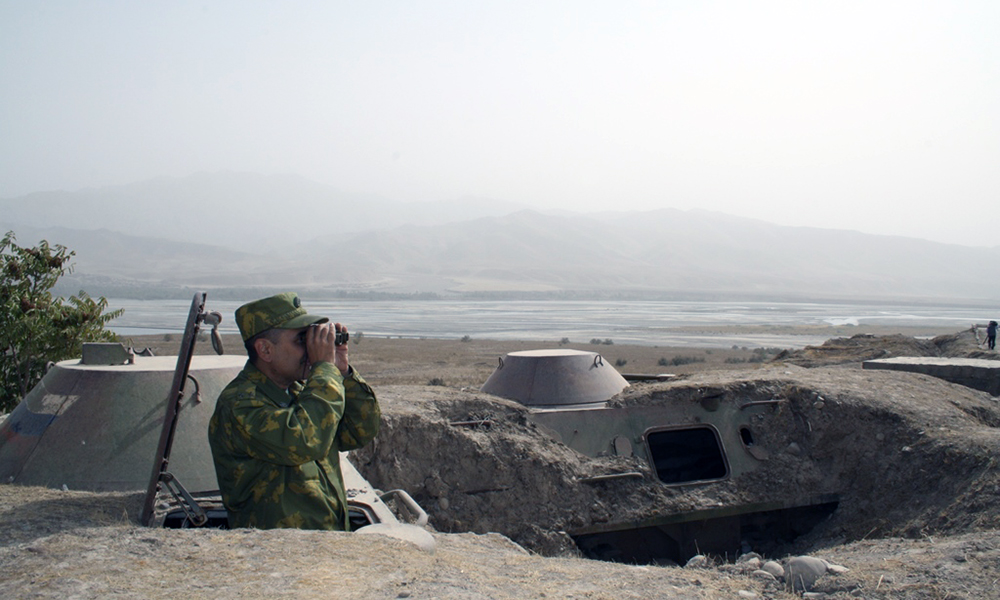Latest News
IEA reject claims by UNSC that foreign groups are active in Afghanistan
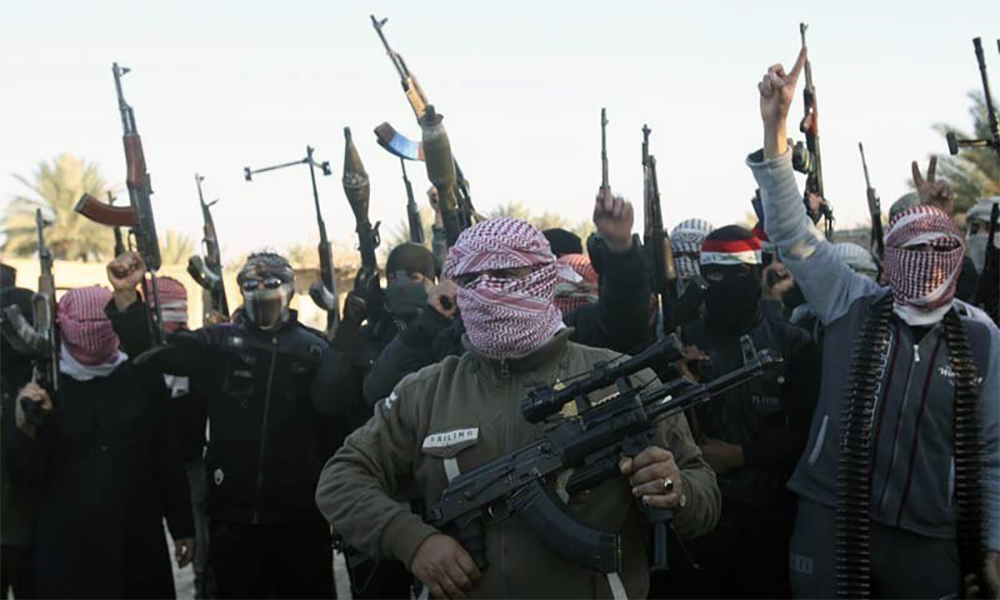
The Islamic Emirate of Afghanistan (IEA) on Monday rejected claims by the United Nations Security Council (UNSC) that there are foreign terrorist groups sheltering in Afghanistan.
In a statement issued by the foreign ministry, the IEA said there were no foreign groups in the country and that for the past nine months, the new government has worked to build an environment of trust between Afghanistan and the international community.
The ministry said it “views UNSC Monitoring Team Report (13) asserting the existence and operation of foreign groups in Afghanistan as unfounded and rejects it in the strongest terms.”
“The fact remains that since the return to power of the Islamic Emirate, the world and the region have been prevented from facing any harm from Afghanistan,” the foreign ministry statement said.
The IEA said it will live up to its commitments and ensure that no country is threatened by Afghanistan.
The foreign ministry also called on the UNSC to obtain facts and to allow the IEA’s representatives to take up their rightful posts at the United Nations.
“We also urge abstinence from seeking unsubstantiated information from anonymous sources, and to grant the current Afghan government its legitimate right to directly present factual information to the UNSC and other countries through its permanent representatives at the UN,” read the statement.
The United Nations Security Council report, released on Friday, stated there is a persistent threat to Pakistan’s security from the Afghanistan-based Tehreek-e-Taliban Pakistan (TTP) and warned that prospects of success of the ongoing peace process with the terror group were bleak,
The annual report of the 1988 IEA sanctions committee monitoring team noted TTP’s linkages with the IEA and explained how they benefitted from the fall of the Ashraf Ghani regime last year and touched upon the IEA’s relations with other terrorist groups operating from Afghanistan.
The TTP, the report noted, had up to 4,000 fighters based in east and south-east areas along the Afghanistan-Pakistan border and made up the largest group of foreign fighters based there.
This was the team’s first report for the committee since the IEA takeover of Kabul in August last year.
The UNSC stated in its report: “The Taliban (IEA) victory in Afghanistan has inspired terrorists around the world, although the relocation of foreign terrorist fighters to Afghanistan has not materialized in significant numbers.
“The Taliban have continued to insist publicly that there are no foreign terrorist fighters in Afghanistan, even though Member States are clear that many fought alongside the Taliban in 2021.
“Central Asian embassies based in Afghanistan reported with concern the appearance of several leaders of foreign terrorist groups apparently moving freely around Kabul from August onwards,” the report stated.
However, the UNSC stated that “there are reports that the Taliban (IEA) have forced some foreign terrorist fighters to disarm or have relocated others away from the capital so that they remain inconspicuous.”
“TTP constitutes the largest component of foreign terrorist fighters in Afghanistan, with their number estimated to be several thousand. Other groups include the Eastern Turkistan Islamic Movement (ETIM), Islamic Movement of Uzbekistan, Jaish-i-Mohammed (JiM), Jamaat Ansarullah and Lashkar-e-Tayyiba (LeT), with each numbering in the few hundreds,” read the report.
“TTP has arguably benefitted the most of all the foreign extremist groups in Afghanistan from the Taliban (IEA) takeover.
“It has conducted numerous attacks and operations in Pakistan. TTP also continues to exist as a stand-alone force, rather than feeling pressure to merge its fighters into Afghan Taliban units, as is the prospect for most foreign terrorist fighters,” read the report.
The UNSC meanwhile said in its report that following the IEA takeover, some members of ETIM were relocated IEA from Badakhshan to provinces further from the Chinese border as part of the Taliban’s efforts both to protect and restrain the group.
“Assessments of the group’s size range from a low of several dozen fighters, according to one Member State, to as many as 1,000 members, according to other Member States,” UNSC reported.
The report noted that several Member States reported some ETIM members have fraudulently obtained local identity documents by fabricating Afghan identities. “The group is seeking to further entrench its presence in the country by both organizing marriages to local women and facilitating the relocation of Uighur women to Afghanistan.”
Latest News
Tajikistan says two soldiers killed in clash with militants near Afghan border
Business
Afghanistan’s first aluminum can factory launched in Herat with $120 million investment
Mullah Abdul Ghani Baradar, Deputy Prime Minister for Economic Affairs, laid the foundation stone of the “Pamir” aluminum can production company at the industrial parks of Herat on Thursday.
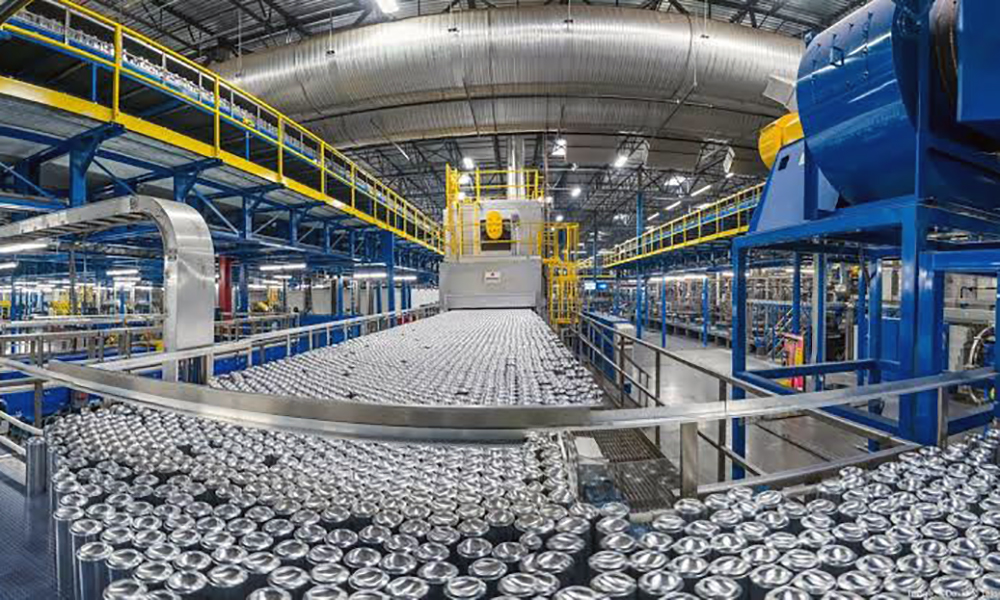
Afghanistan’s first aluminum can manufacturing plant was officially launched on Thursday in Herat province, marking a significant step toward industrial development and economic self-reliance.
Mullah Abdul Ghani Baradar, Deputy Prime Minister for Economic Affairs, laid the foundation stone of the “Pamir” aluminum can production company at the industrial parks of Herat on Thursday.
According to officials, the Pamir factory is the first of its kind in Afghanistan and is being established with an investment of $120 million. The project will be built on 16 jeribs of land within Herat’s industrial zones.
Once completed, the factory is expected to create employment opportunities for around 1,700 Afghan citizens. Officials say the project will play a key role in boosting domestic production, reducing reliance on imports, and strengthening the national economy.
Authorities described the launch of the project as a clear sign of growing investment in the industrial sector and ongoing efforts to promote economic self-sufficiency in the country.
Latest News
Medvedev: IEA posed less threat to Russia than western-backed groups
He added that such organisations have consistently pursued one objective: “to break apart the multiethnic people of Russia.”
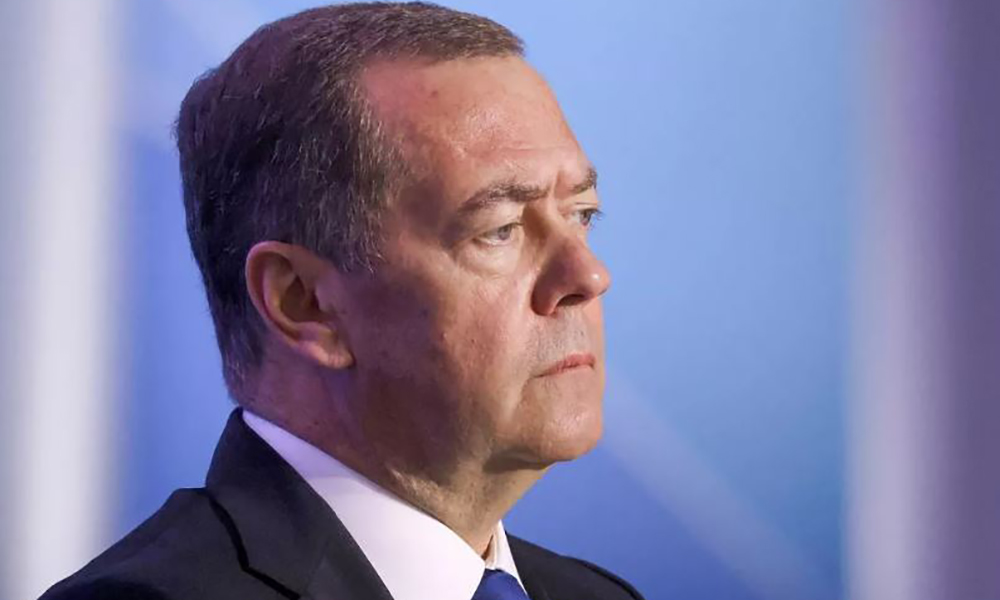
Russia’s Deputy Chairman of the Security Council, Dmitry Medvedev, has said that the Islamic Emirate of Afghanistan (IEA) caused less harm to Russia than Western-backed civic organisations that, he claims, sought to undermine the country’s unity.
In an article published in the Russian journal Rodina, Medvedev wrote that while the IEA had long been designated as a terrorist organisation, its actions did not inflict the same level of damage on Russia as what he described as Western-supported institutions operating under the banner of academic or humanitarian work.
“Let us be honest: the Taliban (IEA) movement, long listed as a terrorist organisation, has caused modern Russia far less damage than all those pseudo-scientific institutions whose aim is to dismantle our country under the guise of aiding the oppressed,” Medvedev stated.
He added that such organisations have consistently pursued one objective: “to break apart the multiethnic people of Russia.”
Medvedev’s remarks come amid a shift in Russia’s official stance toward Afghanistan. In April, Russia’s Supreme Court suspended the ban on the Islamic Emirate of Afghanistan, which had previously been included on the country’s list of terrorist organisations.
-

 Latest News2 days ago
Latest News2 days agoAfghanistan exports 10 containers of batteries to Saudi Arabia and UAE for first time
-

 Latest News2 days ago
Latest News2 days agoPakistani cleric condemns lifetime immunity for Army Chief as un-Islamic
-

 Latest News4 days ago
Latest News4 days agoAfghanistan signs 30-year deal for marble mining in Daikundi
-
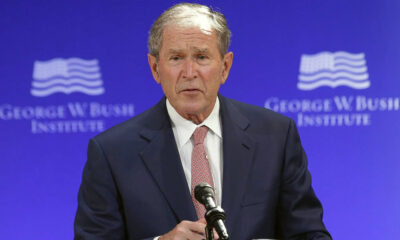
 Latest News4 days ago
Latest News4 days agoBush Institute criticizes Trump administration’s Afghan immigration freeze
-

 International Sports2 days ago
International Sports2 days agoAriana News to broadcast key AFC Champions League Two clash
-

 Regional2 days ago
Regional2 days agoPakistan agrees to $4 billion arms deal with Libyan National Army
-
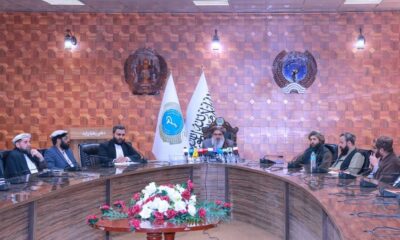
 Health2 days ago
Health2 days agoAfghan Health Minister hails India visit as new chapter in bilateral ties
-
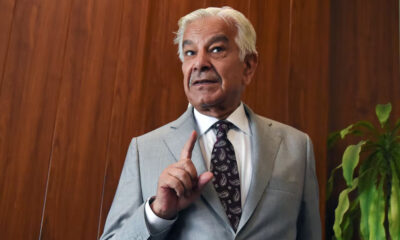
 Latest News1 day ago
Latest News1 day agoPakistan’s actions target militants, not religious sites: Khawaja Asif


